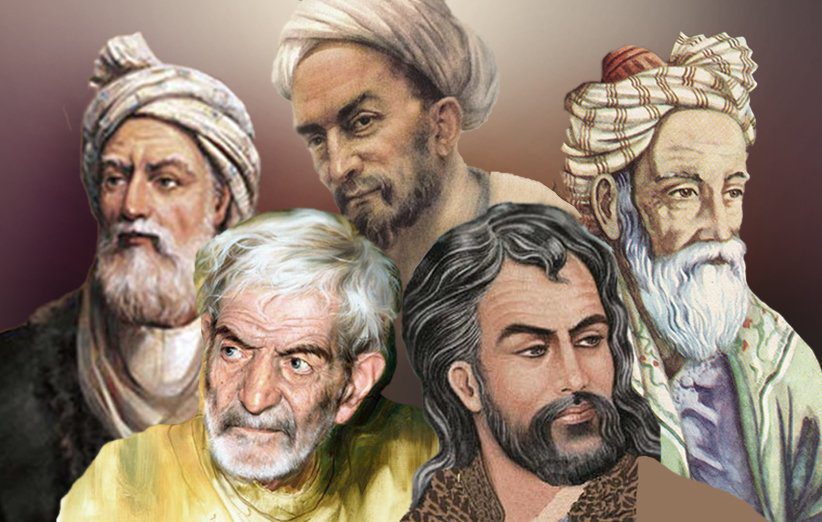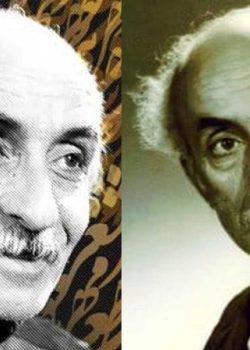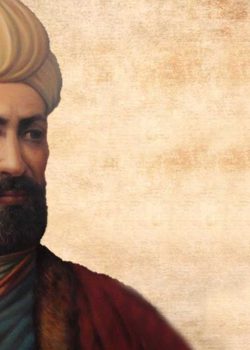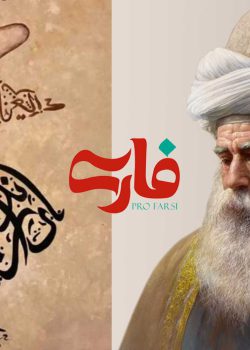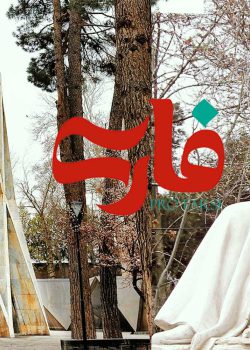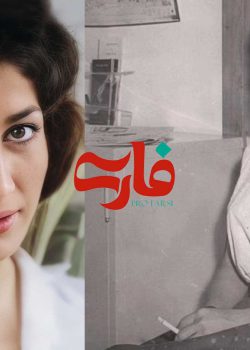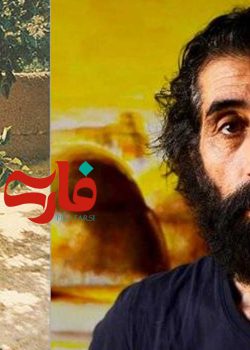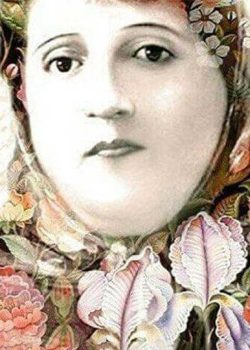Persian literature has one of the most jaw-dropping histories ever. It is filled with so much wonder and exceptional beauty, especially the classical era, so much so that it has left the world in awe of its greatness for centuries. Among the most well-known artists, poets from the classical era have an irreplaceable place in the Persians’ hearts. People have recited their poetry, learned it by heart, and talked about the stories behind popular poems and lyrics. The following article will introduce you to the most famous Persian poets, loved and forever remembered by the Persians.
Famous Persian poets
Persian poetry has a vast and diverse ground, especially when it comes to Classical poetry. With different writing styles and immense creative capacity, Persian poets created unrepeatable masterpieces. The most renowned Persian poets are Rudaki, Ferdowsi, Sanai, Attar, Rumi, Saadi, Nizami, and Hafez Shiraz. Of course, the number of great poets is not limited to the ones mentioned. However, these names are undeniably tangled with Persian history, culture, and traditions.
For instance, at Yalda, a Persian celebration for the longest night of the year, Persian families gather around and commemorate love and companionship. It is customary to recite Hafez Shiraz’s poems and take a Fal out of them. You might not know what Fal is. Allow me to explain. They say Hafez had a unique spiritual power that manifested profoundly in the almighty. As a result, his poems are a bridge between people and the truth. That is why it is customary for Iranians to take a Fal when faced with difficulty, as they believe that the Fal will show them a path to the truth.
Another great example is the stories told by Ferdowsi and Nizami in their poems. These wonderful didactic stories have shaped the culture and customs of the Persians and have been passed down from generation to generation. You can see the traces of these stories in people’s everyday conversations, idioms, and folklore.
When it comes to wonder and inspiration, the world of Persian poetry is endless. The more you read, the less you know. Now, do you wish to learn more? Great! Continue reading the following article to get to know the most famous Persian poets of all time!
Rudaki
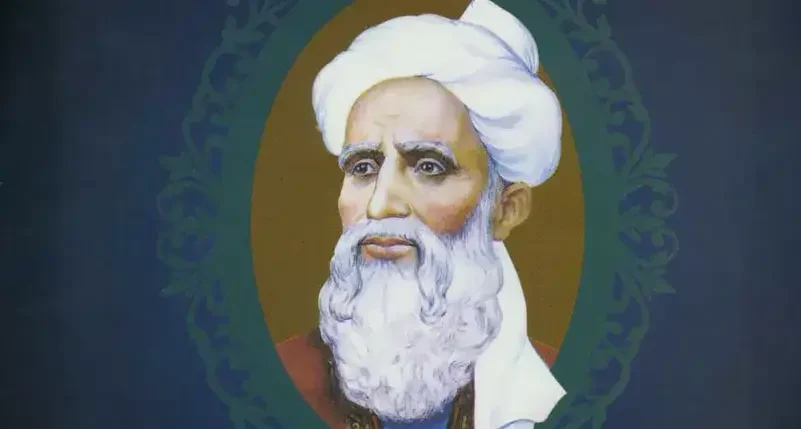
Meet the father of Persian literature, Abu Abdollah Jafar ibn Mohammad Rudaki. He was a court poet under the Samanid King Nar the Second at Bukhara. However, poetry was not his only talent. Rudaki was also a gifted singer and pianist. Not only was he well-respected among all, but he was also very wealthy.
This celebrated and well-respected man developed poetic literary forms, including the Ghazal, Qasidas, and Rubais. He also introduced the concept of the Divan (a collection of a poet’s short works) for the first time. That is why Rudaki is called the father of Persian poets. It is impossible to deny his influence on the form and style of Persian poets of later generations. Unfortunately, out of the tens of thousands of prose poetry credited to Rudaki, only a small portion has survived, which is only a tiny drop compared to the size of the ocean.
| Date of Birth | 585 AD |
| Place of Birth | Tajikistan (previously part of Persia) |
| Time of Passing | 941 AD |
| Place of Burial | Tajikistan |
| Occupation | Poet, Singer, Musician |
| Notable Works |
|
Ferdowsi
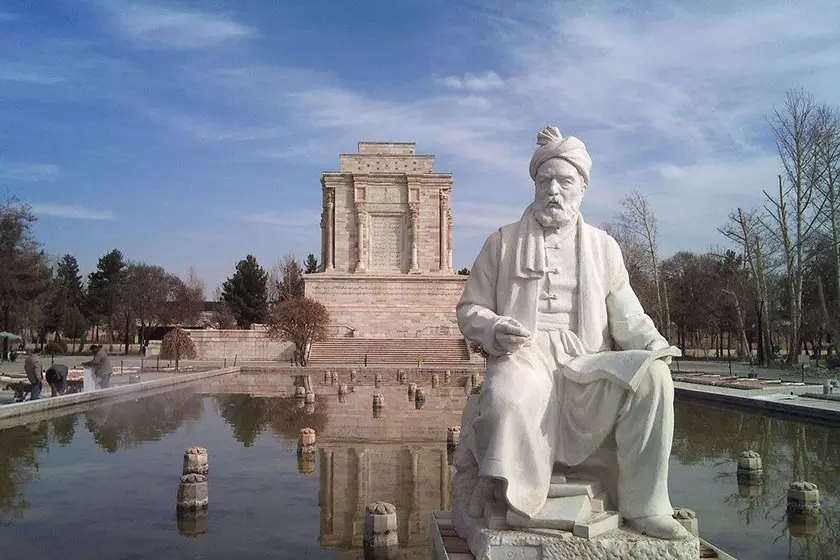
One of the most popular poets among Persians is Ferdowsi. The stories and myths he told through his masterpiece, Shahnameh, have been an undeniable part of Persian culture for centuries. Abul-Qasem Ferdowsi Tusi was a “dehqan”, a farmer. Ferdowsi agreed to write the Shahnameh for Amir Mansur in 977 CE in exchange for a dowry for his daughter. However, the Samanid Dynasty fell shortly and was replaced by the Ghaznavid Dynasty. Although the new king was not very interested in literature, Ferdowsi decided to write Shahnameh. It took him 30 years to finish his masterpiece. Whether he had seen appreciation or a reward for the marvel he created is still a matter of debate. What we know for sure is that Ferdowsi will remain an unparalleled legend in Persians’ minds forever.
| Date of Birth | 940 AD |
| Place of Birth | Pazh, Khorasan |
| Time of Passing | 1020 AD |
| Place of Burial | Tous, Khorasan |
| Occupation | Poet |
| Notable Works | Shahnameh |
Omar Khayyam
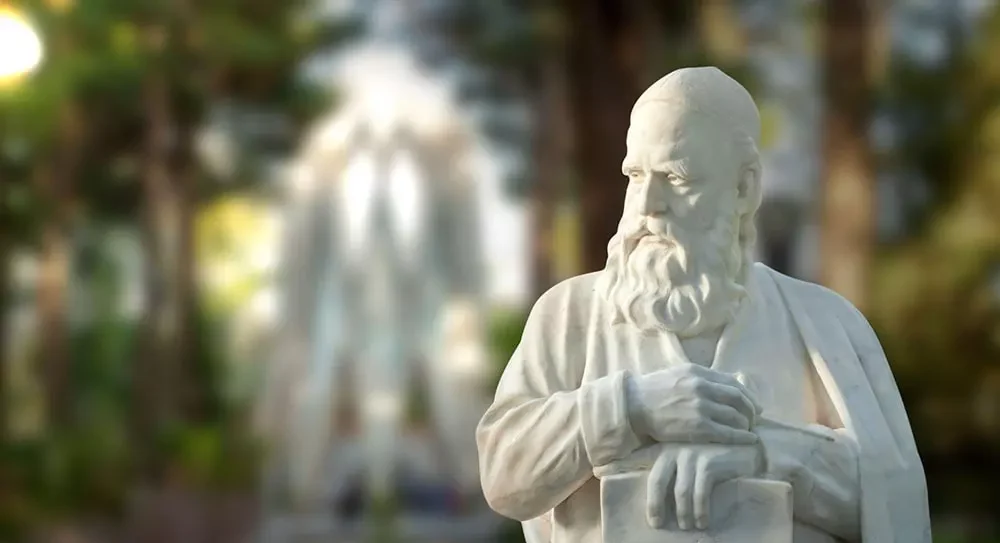
Omar Khayyam is one of the most notable poets who remarkably affected Persian and world literature. Born in Nishapur, Abu’l Fath Omar ibn Ibrahim al-Khayyam was the son of an upper-class family who paved the way for him to become a leading scholar and an outstanding poet. Not only was he interested in literature, but also he was recognized as an astrologer and mathematician. In addition, Khayyam was one of the primary contributors to the Jalali calendar, which corrected the inaccuracies in the Islamic calendar.
On the note of his poetry, he was among the very first writers to introduce the concept of “Carpe Diem” in literature, which later on was used by many artists worldwide, especially artists in the post-modern era. His spoken themes later became the inspiration source for many writers, such as Thomas Hardy. It’s interesting to note that Edward Fitzgerald translated his works as an imitation into English due to his profound interest in Persian Literature. What Fitzgerald has done was to encourage Western interest in Persian Literature. The following poem is one of the most well-known lines written by Omar Khayyam:
Heaven is incomplete without a heavenly romance
Let a glass of wine be my present circumstance
Take what is here now, let go of a promised chance
A drumbeat is best heard from a distance.
گویند کسان بهشت با حور خوش است
من میگویم که آب انگور خوش است
این نقد بگیر و دست از آن نسیه بدار
کآواز دهل شنیدن از دور خوش است
| Date of Birth | 1048 |
| Place of Birth | Nishapur, Khorasan |
| Time of Passing | 1131 |
| Place of Burial | Nishapur, Khorasan |
| Occupation | Poet, Scholar, Astrologer, Mathematician |
| Notable Works |
|
Sanai
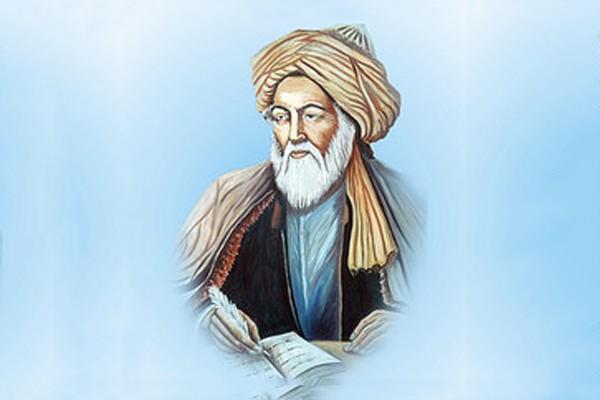
The Ghaznavid Sultan Bahram-shah, who admired literature profoundly, was lucky enough to have known one of the greeted poets of all time, Hakim Abul-Majd Majdud ibn Adam Sanai Ghazanavi, or in short, Sanai. When he was in his youth, he wrote a number of poems praising the Sultan. Gradually, the Sultan took a liking to him and arranged for Sanai to marry his daughter. That was how he obtained a significant position at the court.
But how did he become a Sufi master?
During Bahram-shah’s reign, he attacked India once and asked Sanai to accompany him. When Sanai was on his way to join him at court, he passed a beautiful garden. As the garden’s beauty took him back, he noticed a drunken man talking to himself, criticizing the king and his foolishness in initiating a war that would end with so many lost lives. He then scolded Sanai for wasting his brilliance and talent by praising such an obnoxious man. His words shocked Sanai to the bones, so much so that he quit his position at the court and embarked upon a journey to become a student to a Sufi Master.
Consequently, you can see traces of mysticism in Sufism in all of Sanai’s works. His writing styles have influenced many artists after him, like Attar and Rumi. The most notable concept he introduced in his work was finding divinity and God within oneself. This concept became popular among the poets of the following generation and still remains one of the basic beliefs of Sufism.
| Date of Birth | 1080 AD |
| Place of Birth | Afghanistan (Previously part of Iran) |
| Time of Passing | 1131 AD |
| Place of Burial | Afghanistan |
| Occupation | Poet, Sufi Master |
| Notable Works |
|
Attar
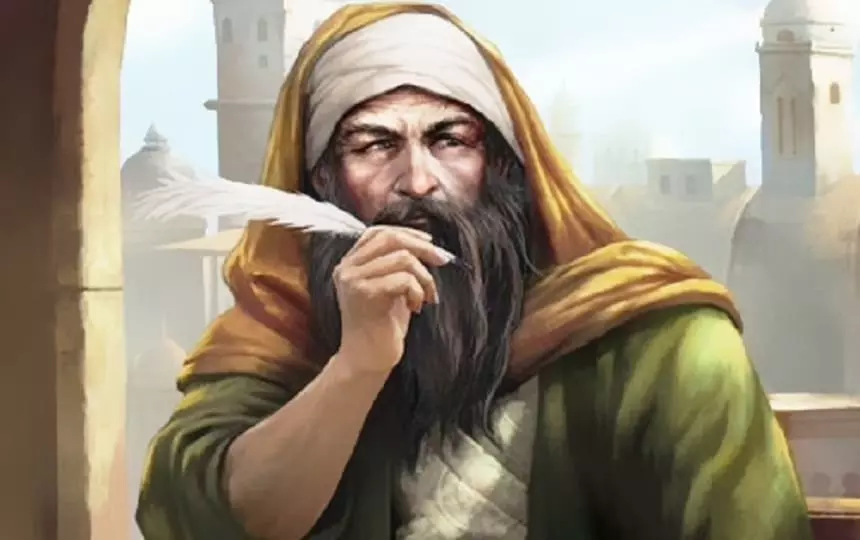
Following his father’s profession, Abu Hamid bin Abu Bakr Ibrahim was a chemist. He started writing verses in his leisure time. Evidently, he learned the art of poetry on his own since there is no evidence that he had a teacher. He was against the poets who praised the monarchs for money and recognition because he believed it was not worth their talent. Unfortunately, his art was never discovered or appreciated in his lifetime. Later, people started reading and reciting his verses and recognizing his brilliance. He is now known as Attar of Nishapour, a well-respected and genius poet. Like Sanai, Attar embraced the mysticism of Sufism and used his beliefs in his works, especially in The Conference of the Birds, which is considered his masterpiece. His other works share similar themes. Sadly, he was killed during the invasion of the Mongols in his city of Nisapur.
| Date of Birth | 1145 AD |
| Place of Birth | Nishapur |
| Time of Passing | 1221 AD |
| Place of Burial | Nishapur |
| Occupation | Chemist, Poet, Scholar |
| Notable Works |
|
Rumi
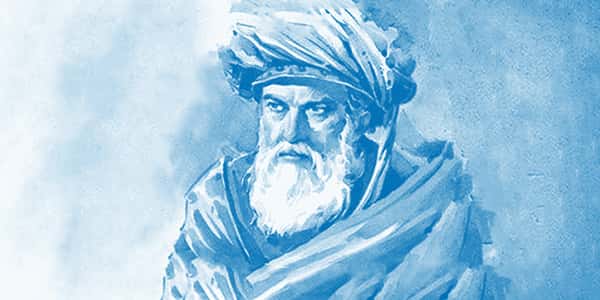
The 13th-century poet Jala ad-Din Muhamamad Rumi is a well-known poet recognized by Persians and the world. Rumi was one of the greatest mystical poets of his time and also a well-respected scholar. Being born into a well-educated family, Rumi had an insatiable desire to learn, especially languages. He was multilingual, fluent in Persian, Arabic, Greek, and Turkish. It is said that Rumi met Attar of Nishapur when he was 18, and he gave him one of his books, which later on had a considerable influence on Rumi’s belief system and spiritual awakening.
Years later, when he became a renowned scholar, he met a Sufi dervish called Shams, who changed Rumi’s life forever. Shams and Rumi became friends and shared a path for four years. Then suddenly, Shams disappeared one night and was never seen again. The reason behind this sudden disappearance is still a matter of debate. Rumi searched for him for a long time until he realized their shared spiritual bond was beyond anything else, and his spirit would always remain part of his own. From then on, he wrote poems credited to Shams’ spirit.
Due to his profound mastery of literary skills and spiritual insight, people now recognize him as Mawlavi, which means “our master.” Of course, the rest of the world knows him as Rumi, one of the greatest Persian poets whose words resonate through generations.
| Date of Birth | 1207 |
| Place of Birth | Balkh (Afghanistan or Tajikistan, previously part of Iran) |
| Time of Passing | 1273 |
| Place of Burial | Konya, Present-day Turkey |
| Occupation | Poet, Musician, Scholar |
| Notable Works |
|
Saadi
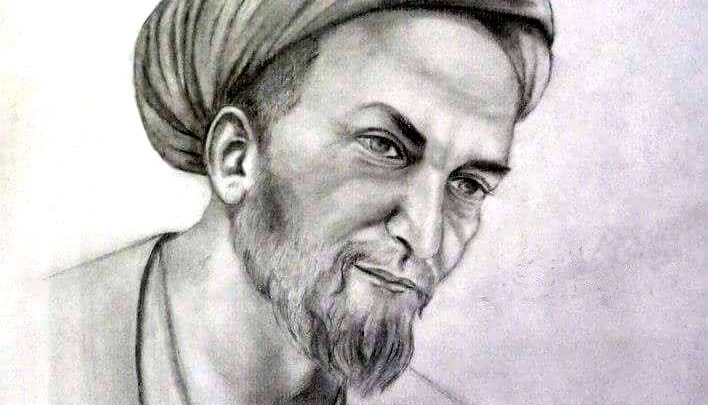
The invasion of the Mongols was a traumatic incident in history and affected people deeply. Saadi was no exception. Abu-Muhammad Muslih al-Din bin Abdallah Shirazi, known as Saadi, was a great poet and also a prominent travel writer (as he rarely stayed in one place for a long time), historian, and an existentialist who focused on the importance of living one’s life to the fullest. He strongly believed that human beings are responsible for each other and used this theme in his poems. During his travels, he preferred the company of the common people to the elite and tried to sympathize with those affected by the Mongol Invasion. In his forties, he returned to Shiraz, his birthplace, and committed to writing. His most notable works are Golestan and Bustan, which explore the importance of virtue and mysticism in apprehending divinity.
| Date of Birth | 1209 -1210 |
| Place of Birth | Shiraz |
| Time of Passing | 1291-1292 |
| Place of Burial | Shiraz |
| Occupation | Poet, Travel Writer, Scholar, Historian |
| Notable Works |
|
Nizami
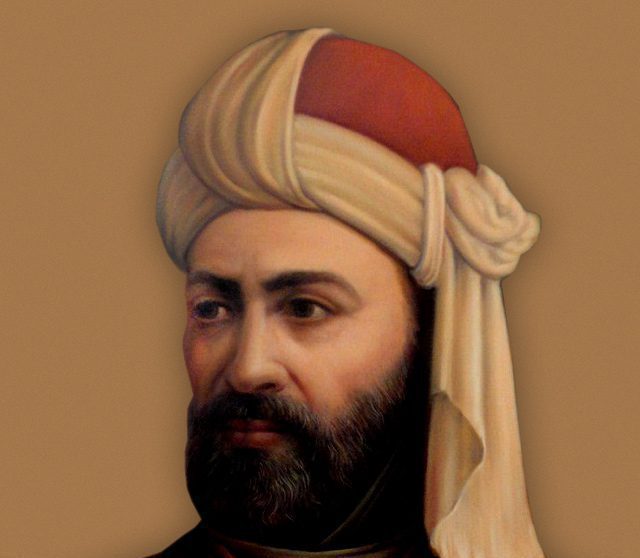
One of the most talented story-telling poets of Persian Literature is Nizami. Nizami Ganajavi had an excellent education, so much so that he is considered one of the most well-read poets. Consequently, he found source material and inspiration from the work of other artists like Sanai and especially Ferdowsi. It is said that he knew Shahnameh by heart. The most famous tale in his piece is, for sure, the tale of Khosrau and Shirin. He was a master when it came to romantic stories. Nizami believed that, without love, life was meaningless. Hence, love is the most outstanding theme in his poems.
| Date of Birth | 1130 or 1141 |
| Place of Birth | Ganja, Azerbaijan (Previously part of Iran) |
| Time of Passing | 1209 |
| Place of Burial | Ganja, Azerbaijan |
| Occupation | Poet |
| Notable Works | Five treasures:
|
Hafez Shiraz
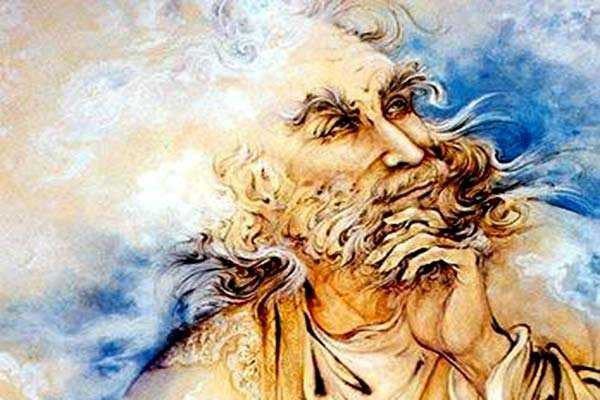
As mentioned earlier, Hafez is one of those poets who played a significant role in literature and culture. Born in Shiraz, Khawja Shams-ud-Din Muhammad Hafez-e Shiraz, or Hafez, is the greatest Persian poet and is regarded as a saint. Hafez knew the Quran by heart and fully mastered the mysticism of Sufism. This remarkable man dedicated his life to learning the truth and the greatness of God, whom he believed was the object of every individual’s earthly desire. By accepting the mysticism of Sufism, he saw the Divine as a personal union that can be achieved through self-knowledge, self-discipline, and patience with God’s apparent silence. His tomb in Shiraz is one of Iran’s most visited tourist attractions in Iran.
| Date of Birth | 1325 |
| Place of Birth | Shiraz |
| Time of Passing | 1390 |
| Place of Burial | Shiraz |
| Occupation | Poet |
| Notable Works | The Divan of Hafez |
Learn more about Persian Literature with ProFarsi
Did you find this article interesting? If you wish to learn about the same topics and more, you can simply visit the blog page on the ProFarsi website, pick a topic, and start reading. ProFarsi allows you to familiarize yourself with the Persian world, literature, art, and culture. You can also learn the language through the courses of remarkable and talented teachers. ProFarsi is a fantastic gate to the Persian world. Would you like a Glimpse? Visit the website now!
read more:
6 Attar of Nishapur Poems: the Persian Poetry of Attar
Saadi Shirazi’s Books: Cultural Treasures of Persian Literature
Related Posts

